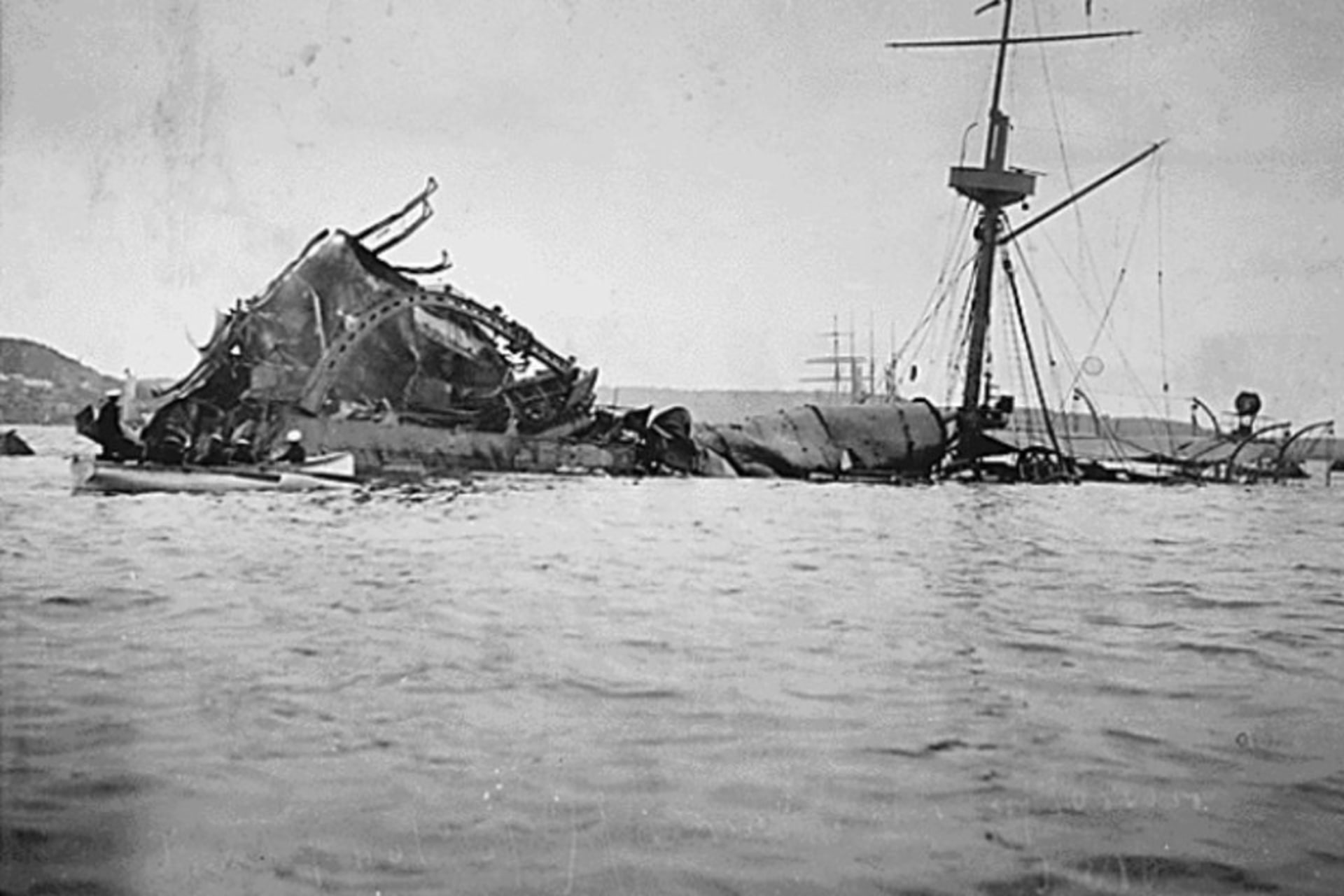TWE Remembers: The Sinking of the USS Maine
The fate of the USS Maine galvanized the United States toward war with Spain.

By experts and staff
- Published
Experts
![]() By James M. LindsayMary and David Boies Distinguished Senior Fellow in U.S. Foreign Policy
By James M. LindsayMary and David Boies Distinguished Senior Fellow in U.S. Foreign Policy
“Don’t Tread on Me.” “Remember the Alamo!” “Fifty-four Forty or Fight!” “Damn the torpedoes! Full speed ahead!” “Nuts!” The history of American foreign policy is full of pithy declarations that capture the country’s determination at pivotal moments in its history. Today marks the anniversary of one such declaration: “Remember the Maine!”
The 354 men aboard the battleship USS Maine were enjoying a quiet evening on February 15, 1898, as the ship lay at anchor in Havana harbor. They had been dispatched to Cuba less than a month earlier to project American influence as the Cuban revolution against Spanish rule gained strength. But at 9:40 p.m. everything changed. An explosion rocked the ship’s magazines, tore apart its forward sections, and sent the Maine to the bottom of the harbor. Two hundred and fifty-two U.S. sailors died immediately; another fourteen would subsequently die of their wounds.
What had happened? The U.S. Navy’s initial investigation concluded that the explosion was caused by a naval mine. Who had laid it? The sensationalist American “yellow press” had no doubt about the answer to that question: the dastardly Spanish. William Randolph Hearst’s New York Journal roared that “The Warship Maine Was Split In Two By An Enemy’s Infernal Machine.”
The sinking of the Maine came at a time of heightened tensions between Washington and Madrid. So-called imperialists had for years been calling for the United States to assert itself more aggressively in the Western Hemisphere. (Theodore Roosevelt, one of the most prominent imperialist voices, said in 1896: “I should welcome almost any war, for I think this country needs one.”) The yellow press had been regaling their readers for months with stories of how the Spanish had savagely suppressed Cubans yearning for independence. And just days before the explosion aboard the Maine, Hearst’s Journal had published a confidential letter that Spain’s ambassador to the United States had written to the Spanish foreign minister. It belittled the American president, William McKinley, as “weak and a bidder for the admiration of the crowd.” Americans were furious at the disrespect shown the president.
The fate of the Maine galvanized the American public. As a Journal headline put it, “The Whole Country Thrills With War Fever.” And the fever did not break. In late April, McKinley reluctantly asked Congress to declare war on Spain. Congress did. Fighting in the Spanish-American War began in May. By August what future secretary of state John Hay famously dubbed a “splendid little war” was over. The United States emerged with a U.S.-backed government in Cuba, colonial possessions in Puerto Rico and the Philippines, and overwhelming influence throughout Latin America. The “American Century” had begun.
Although the sinking of the Maine stands as an epic event in the history of American foreign policy, it also remains unsolved. The Army Corps of Engineers examined the wreckage in 1911, and reaffirmed the Navy’s original conclusion that a mine had destroyed the Maine. However, in 1974 a review led by the Admiral Hyman G. Rickover, the legendary father of the U.S. nuclear navy, concluded that the explosion was most likely accidental, caused by a fire in an adjacent coal bunker. A 1998 computer analysis commissioned by the National Geographic Society concluded that, although there were signs of an external mine, the evidence was inconclusive.
The cause of the sinking of the Maine may still be a subject of historical debate. But its consequences are not. It helped lead, as Henry Cabot Lodge later wrote, to a war with results that “were many, startling, and of world-wide meaning.”
Remember the Maine.
